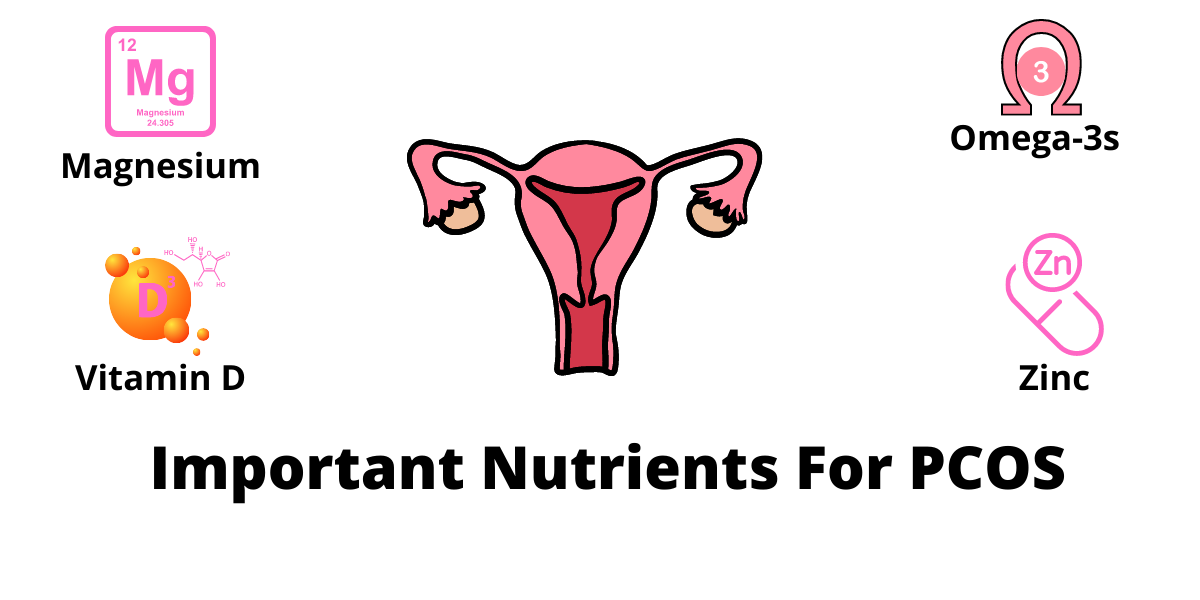Today’s article is my fourth in a comprehensive series on Polycystic Ovary Syndrome which has previously included discussions on:
- Supplements For PCOS
- PCOS and Soy-based Foods
- Probiotics and PCOS
Each of those articles can be accessed individually via this link.
For this particular piece, I turn my attention specifically to the micronutrients (ie; vitamins & minerals) which have shown the most promise in PCOS management across salient concerns such as insulin resistance, excessive androgen levels and fertility/ovulatory concerns.
As comprehensive as I try to be with my writing, I don’t like to give EVERYTHING away via my blog because I want to save the most salient dietary insights for those who choose to work with me one on one.
With that being said, I am fully confident in the value that anyone living with PCOS will gain from today’s article.
Let’s get right to it!
Magnesium
Insulin resistance is a common but not universal characteristic of PCOS.
Magnesium, which plays a role in glucose metabolism, may be under consumed at the general population level – including in women living with PCOS.
The problem with this is simply that poor magnesium status is associated with an increased likelihood of insulin resistance (1,2).
While we don’t know for certain that an increased magnesium intake will help with PCOS, we must acknowledge that many magnesium rich foods such as spinach, swiss chard, pumpkin seeds, flax seeds, chickpeas, lentils, quinoa, yogurt, almonds, avocados and dark chocolate are extremely nutrient dense and contribute a wide array of valuable health benefits beyond just their magnesium content.
Zinc
Zinc is another micronutrient that may be under consumed at population level, even if this is less likely to occur than it is with magnesium.
Zinc plays a role in both glucose and hormone metabolism and thus has generated some interest for a potential role in PCOS management.
In fact, a 2015 randomized controlled trial found that zinc sulfate supplementation ( 220 mg) daily over an 8 week period improved insulin and blood glucose markers in women living with PCOS.
In addition to being found in chicken, beef, seafood and pork – many rich sources of magnesium are also high in zinc such as pumpkin seeds, hemp seeds, tofu, lentils, chickpeas, spinach and yogurt.
Vitamin D & Omega-3
Vitamin D and Omega-3 fatty acids are what I classify as “elusive” micronutrients because they are generally found in very few foods.
In other words, its plausible that one might consume what overtly appears to be a well-balanced diet but still exclude the few items that contain these essential nutrients.
Fatty fish, such as salmon, is one of the few choices that contains both in a meaningful quantity and yet many Canadians don’t consume much fish.
(Mackerel, herring, trout and sardines are also great choices and omega-3 eggs also contain modest amounts of both omega-3 and Vitamin D in the same place)
This, in addition to the lack of sun exposure in Canada, explains why Vitamin D is the top selling supplement on Amazon.ca
In the experimental studies that exist looking at Vitamin D supplementation in women living with PCOS, evidence exists to suggest that it may help reduce insulin resistance and excessive male hormone levels.
Omega-3 fatty acids contribute to anti-inflammatory cellular signalling which may be of particular relevance to PCOS given the studies which have demonstrated that inflammatory markers are higher in women living with PCOS.
As it relates to omega-3 supplementation, a 2018 meta-analysis identified that it may help women with PCOS reduce insulin resistance, cholesterol and triglyceride levels.
Foods naturally high in omega-3 fatty acids, other than those listed above, include walnuts, chia, flax, hemp and soy (edamame, tofu).
You will note that these foods are recurring from the zinc/magnesium sections and could fairly represent important foods to consider incorporating.
More Diet & PCOS Info
Today’s post has provided a glimpse into some of the more salient micronutrients, and the foods that contain them, that may be of particular relevance to women living with PCOS.
And there is more where that came from.
While I tend to reserve more specific dietary guidance for those who work with me one on one, I will offer up a few insights as it relates to dietary strategies that may benefit women living with PCOS in the section below.
These articles will provide relevant but generic nutritional guidance ( primarily diet, not supplement related in most cases) which will begin to address your specific concerns as they may range across relevant sup topics such as insulin resistance, excessive androgen levels and/or fertility/ovulatory issues.



